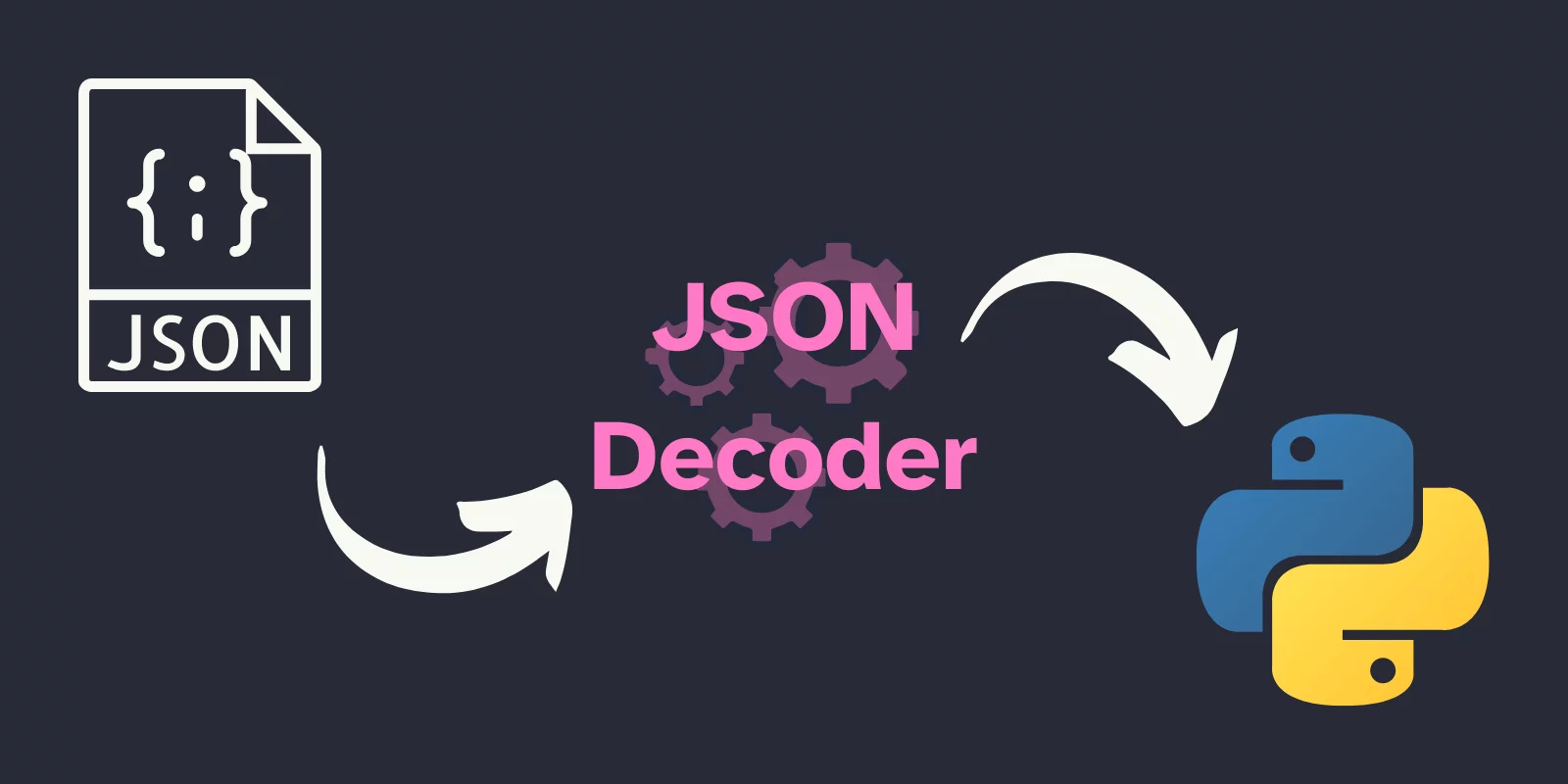
Asymmetry suggests other alternatives
In the two previous TIL articles, I wrote briefly about how to use a custom JSON encoder and how to use a custom JSON decoder. Looking at the two articles linked, there is a noticeable asymmetry in the strategies used to do the encoding and the decoding.
We subclassed json.JSONEncoder in order to implement custom JSON encoding for our Python objects,
and then we passed that class to the methods json.dump and json.dumps.
However, in order to implement custom JSON decoding into arbitrary Python objects,
we just implemented a function that was then passed into json.load and json.loads as the parameter object_hook.
Reading the two previous sentences, even if I didn't know the module json,
I would expect one of the two to be true:
- there is a class
json.JSONDecoderthat can be subclassed and then passed in tojson.loadandjson.loads, which will also allow for custom JSON decoding; or -
json.dumpandjson.dumpsaccept a parameter which should have a name similar toencode_hookorencoder_hook, which would allow us to implement just a function that would take care of the custom JSON encoding.
As it turns out, the former is true:
the module json has a class JSONDecoder that we can subclass – and then feed to json.load and json.loads –
which allows us to decode JSON into arbitrary Python objects.
Let us see how to do that.
json.JSONDecoder
The documentation doesn't tell you much about how to use json.JSONDecoder,
so I will share with you what I could piece together.
The functions json.load and json.loads accept a keyword argument cls,
which the documentation describes as behaving in the following way:
“To use a custom
JSONDecodersubclass, specify it with theclskwarg; otherwiseJSONDecoderis used. Additional keyword arguments will be passed to the constructor of the class.”
Then, if you go and read the documentation on JSONDecoder,
you see that it accepts an object_hook upon initialisation,
which is what we have used to implement custom JSON decoding in the previous article.
Thus, the obvious path forward seems to be to subclass json.JSONDecoder and make it so that,
by default, it uses a custom object_hook argument.
Something along the lines of this blueprint:
import json
class MyJSONDecoder(json.JSONDecoder):
def __init__(self, **kwargs):
kwargs.setdefault("object_hook", my_custom_object_hook)
# Just need to implement this ---^^^^^^^^^^^^^^^^^^^^^
super().__init__(**kwargs)
my_object = json.loads(json_data, cls=MyJSONDecoder)Defining a custom decoder class
With the blueprint above in mind, let us go back to the example of decoding complex numbers.
Let us assume that a complex number is represented as a JSON dictionary with the following structure:
{
"real": 1.0,
"imag": 2.0
}Taking that into account, we can implement the object hook as follows:
import json
class ComplexDecoder(json.JSONDecoder):
def __init__(self, **kwargs):
kwargs.setdefault("object_hook", self.object_hook)
super().__init__(**kwargs)
def object_hook(self, dict_):
"""Try to decode a complex number."""
try:
return complex(dict_["real"], dict_["imag"])
except KeyError:
return dict_
json_data = """{
"real": 1.0,
"imag": 2.0
}"""
c = json.loads(json_data, cls=ComplexDecoder)
print(c) # (1+2j)All in all, the main difference between this and the strategy outlined in the previous article about custom JSON decoding is that we wrap our object hook in a subclass of json.JSONDecoder.
Conclusion
If you want to do custom JSON decoding, you will always need to implement a hook. The easiest way is to implement an object hook that takes JSON dictionaries and tries to parse them into something else.
If you want a solution that is more symmetric with respect to how custom JSON encoding is done,
you can subclass json.JSONDecoder and plug the object hook as a default argument.
You can read a follow-up article where I implement a system that allows you to extend JSON through custom encoders and decoders.
That's it for now! Stay tuned and I'll see you around!
Become the smartest Python 🐍 developer in the room 🚀
Every Monday, you'll get a Python deep dive that unpacks a topic with analogies, diagrams, and code examples so you can write clearer, faster, and more idiomatic code.
References
- Python 3 Documentation, The Python Standard Library,
json.JSONDecoderhttps://docs.python.org/3/library/json.html#json.JSONEncoder [last accessed 17-06-2022]; - “TIL #047 – Custom JSON decoder”, https://mathspp.com/blog/til/custom-json-decoder [last accessed [17-06-2022];
